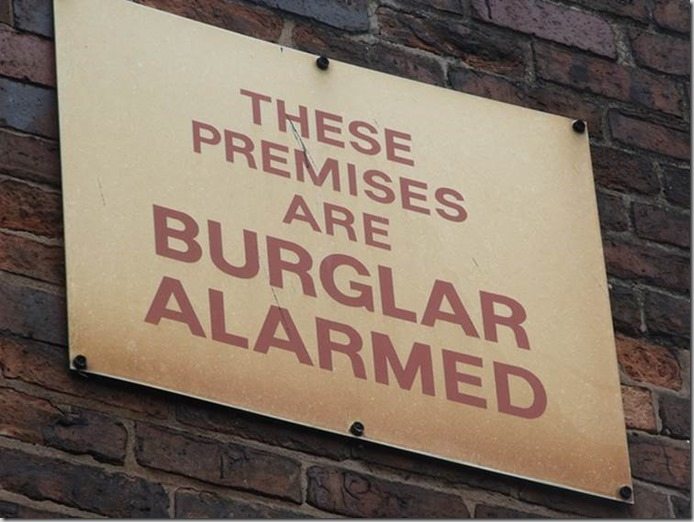5 Ways to Keep Your Worksite Safe after Hours
Guest Post
No matter what your business specialises in, you’re going to have things that you need to keep safe, whether it’s confidential files, your petty cash, computers, or other assets. That said, if someone were to break in, chances are it would be after hours as that’s when fewer people are likely to be around. While thieves’ methods are ever-evolving, there are thankfully several measures that you can undertake to prevent break-ins and make your workplace safe.
Image Source: Flickr.com
1. Limit Office Access
Limiting access to your office isn’t necessarily a matter of keeping guests out, it’s a matter of tracking the people who are coming in and out. Of course the steps you decide to take should also be based on the size of your office and how many employees you have. For example, if you’re a large company, it may mean creating photo ID badges and requiring guests to wear visitor badges. Visitors should also sign in and out. All this is to ensure that no unauthorised persons can come in and survey the premises during daytime. The measures will also guarantee that no one slips in before you lock up for the day.
2. Use Keys Properly
In addition to the obvious step of ensuring that all doors and windows are locked before leaving for the evening, it’s also important that you make sure all partitioned areas that can be locked up separately are. This is an important step that will limit your exposure in the event that a burglar actually attempts to access your worksite. It is also important to consider that locks will only be as effective as the policy surrounding your key distribution allows.
While you have most likely carefully vetted employees who have access to keys, you may want to consider becoming even more prudent. For instance, the number of people with master keys or with multiple-access keys should be limited to just a few of your employees. Moreover, it’s important to safeguard your spare keys. If you simply keep them in a desk that is easily accessible, then anyone who breaks into your office could find them, making the process of locking up individual rooms or offices moot.
Another point is that you should have procedures for employees who prefer working late. Individual employees should, for example not stay at the office after hours alone or on a regular basis, which is less likely to happen if you have rules in place that cover these.
3. Install Preventative Measures
Many of the popular security devices out there aren’t dedicated to catching criminals in the act of breaking in, but rather to deter them. Burglars are often looking to get in and out as quickly as possible and with little to no attention thrown their way. This is why measures like motion detector enabled floodlights are such a good idea. The simple occurrence of the lights turning on and the overwhelming brightness will draw attention towards your building.
In the same vein, while security cameras are a great aide in catching criminals after the act, they’re also a powerful deterrent as burglars who see them are not likely to risk being filmed while breaking in or entering. Because of this, it’s often better to have conspicuous cameras than small ones. For instance, a camera column in addition to being less susceptible to vandalism is much more likely to be seen by everyone passing your worksite.
4. Install Alarms
This can sometimes be an expensive step, but if you believe your office is particularly prone to break-ins, it could be a completely necessary one. Moreover, if you purchase an alarm through a security company, it comes with the added benefit of 24-hour support so that anything out of place can be checked with you and, if you find the circumstances suspicious, the police can be dispatched immediately. These sophisticated systems are more difficult than ever to tamper with, so that if someone tries to disable it, you’ll know.
5. Have a Plan
Perhaps the single most important thing you can do to keep your office safe is to have a delineated policy that covers security. This is because it’s important for staff to have a clear idea as to what is expected of them during security, emergency situations for example when an alarm goes off. There should also be a closing time procedure. For instance, everything should be kept neat and tidy so that, in the event of a crime, whatever is stolen can be immediately noticeable. A clear policy as to what should happen if a break in is detected should be enacted. It should indicate for example, who within the company needs to be notified and in what order. If you take the proper preventative measures the chances of a break in will be significantly lower.
Naomi Fuller writes for G&S Industries – a leading manufacturer of quality poles and columns, specialising in camera columns, based in Perth, Western Australia



Do you have any thoughts? Please share them below